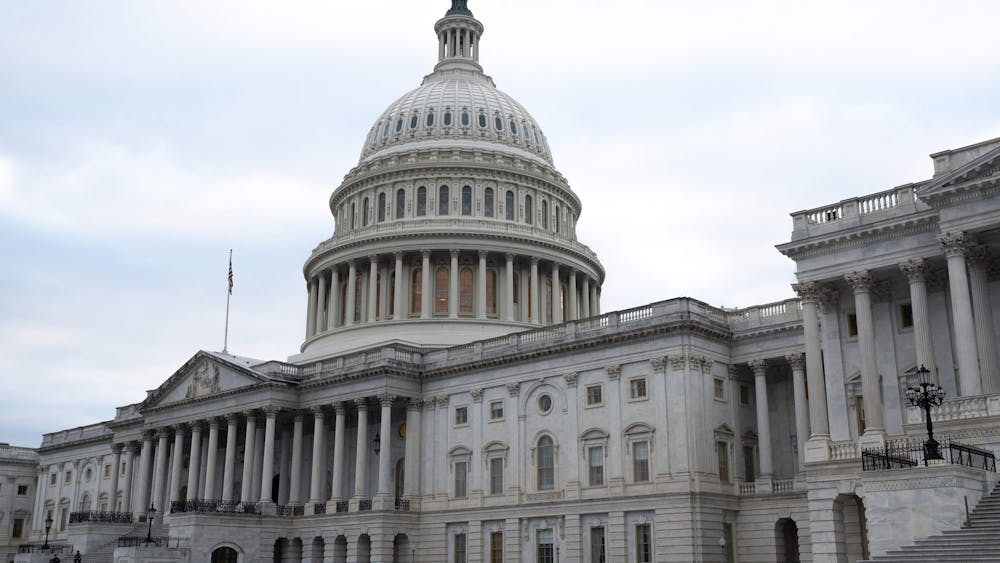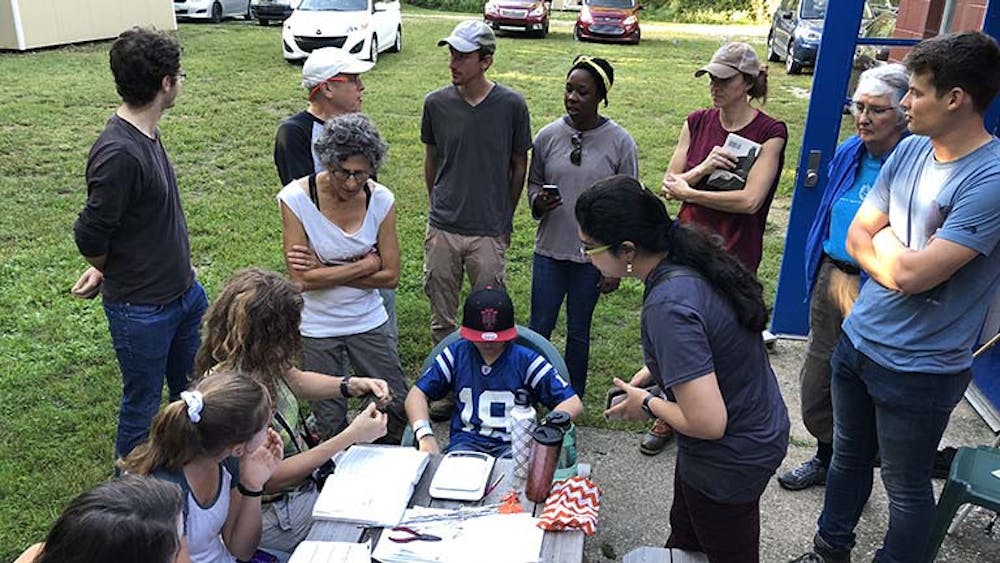Impeachment hearings for President Donald Trump have been occurring since mid November. With all the impeachment proceedings going on, many people are finding themselves unsure on how impeachment actually works.
Trump is being accused of attempting to coerce Ukraine into investigating his political opponents.
Impeachment does not mean removal from office but rather the start of the removal process. The House of Representatives has the sole power over impeachment and the Senate has the sole power to try impeachments, according to the Constitution.
The Constitution lists treason, bribery and other high crimes and misdemeanors as grounds for impeachment.
Sophomore and international law major James Romano said he thinks Trump’s interaction with Ukraine resembles bribery, which is specifically listed in the Constitution as grounds for impeachment.
Charles Geyh, Maurer School of Law professor, said he does not think it matters whether this is bribery or not because asking a foreign power to investigate political opponents is already a political crime and an impeachable offense in his opinion.
The Constitution does not include anything about the impeachment process, Geyh said.
“The House and Senate can basically dictate what procedures they plan to follow to impeach and try impeachments,” Geyh said.
The House begins the impeachment process with identifying a person and investigating whether they committed any impeachable offenses. This is the part of the process where the current impeachment proceedings are. The House is organizing hearings to listen to evidence and decide if there is a case against the president, Geyh said.
A committee will then vote on whether to draft articles of impeachment, which would say the president violated his oath of office, political science professor Jeffrey Isaac said in an email.
Once the articles of impeachment are drafted, the entire House will then vote to impeach the president. A majority is needed for an impeachment.
After the president is impeached, he goes before the Senate for a trial. The House will present the case against the president, who can hire lawyers to defend himself, Geyh said.
“The Senators will essentially be the jury, and the judge presiding over the trial is the Chief Justice of the Supreme Court,” Isaac said.
Two thirds of the Senate is needed to vote the president out of office. Geyh said this is to prevent removal from office from being a completely partisan decision.
Romano said he does not think impeachments should be based entirely on party grounds.
“I personally am uncomfortable with impeachment processes being strictly partisan based,” Romano said. “I think if it is to be effective, it needs to be bipartisan.”
Geyh said the other presidential impeachments that have occurred have primarily been for partisan reasons, but Trump’s impeachment proceedings have been especially based on party lines.
“I think that you are seeing a level of partisanship that you haven’t seen in the past,” Geyh said. “The level of partisanship is so high that there seems to be a virtual indifference to the underlying facts, an attempt to comport the truth rather than to expose the truth.”
Geyh, Isaac and Romano all said they think impeachment is likely, but do not think Trump will be removed from office.
“One of the things the president has succeeded in doing is establishing roots with his base that are so strong that the Republican senators are really at risk if they turn on the president,” Geyh said.






